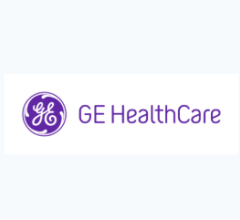
August 4, 2009 - The new medical consensus statement from the American Society for Radiation Oncology (ASTRO) outlines patient selection criteria and best practices for the use of accelerated partial breast irradiation (APBI), a simpler, much shorter course of radiation treatment following lumpectomy surgery for breast cancer. It was published in the July 15, 2009, issue of the International Journal of Radiation Oncology*Biology*Physics, the organization’s official journal.
“Patient selection for APBI is a critical component of the treatment decision-making process. If inappropriate patients are selected, bad outcomes will occur,” said Coral Quiet, M.D., of Arizona Breast Cancer Specialists. The ASTRO consensus statement is a positive step in establishing guidelines for appropriate patient selection.”
The physicians from Arizona Breast Cancer Specialists said one of the statement’s most significant conclusions was the importance of “limiting the dose to non-target tissue.”
The ASTRO consensus statement outlines, among other factors:
- Which patients may be considered for APBI;
- What constitutes proper informed consent for patients treated with APBI;
- Which diagnostic imaging tests are needed for patients treated with APBI;
- How to integrate APBI with surgical and chemotherapy treatment; and
- How the various techniques for APBI compare with one another.
“The ASTRO task force identified the importance of physics and dosimetry in delivering APBI,” said Robert Kuske, M.D., also of Arizona Breast Cancer Specialists. Dr. Kuske is one of the nation’s leading radiation oncologists and pioneered the use of APBI through a multi-catheter technique. “The margin of error physicians have with APBI is much smaller than whole breast radiation, and mistakes have extremely significant consequences. To avoid the risks associated with increased toxicity, the delivery of radiation needs to be extremely precise.”
For decades, breast conservation therapy for early-stage breast cancer consisted of a lumpectomy followed by six weeks of whole breast irradiation. There has been growing interest in the use of APBI, which treats only the tumor cavity and surrounding tissue. This reduces treatment from six weeks to just five days and can decrease the amount of radiation delivered to healthy tissue and adjacent structures.
“Though the consensus statement is a relatively conservative interpretation of the existing data, it opens the door for discussion with patients. The more information a patient has to make an informed decision, the better,” said Dr. Quiet.
For more information: www.astro.org


 January 30, 2026
January 30, 2026 









